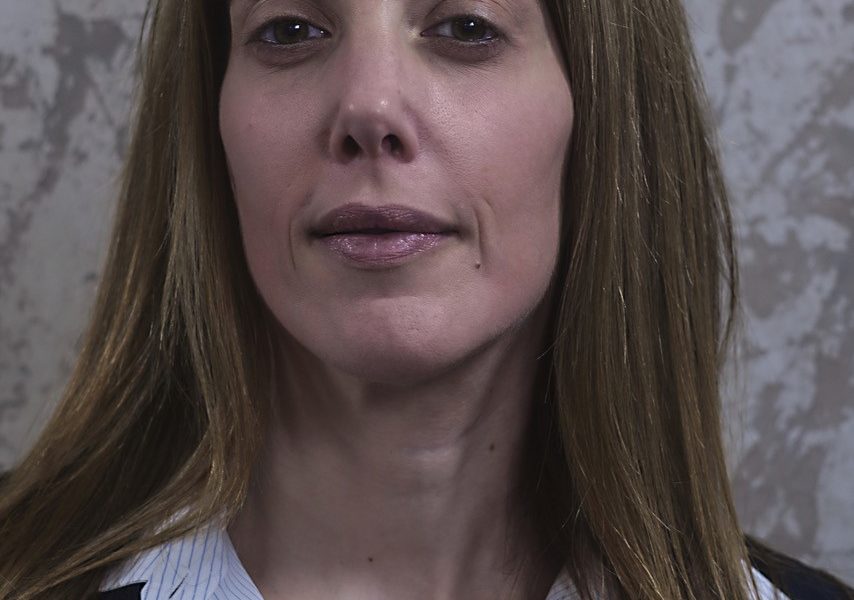Domniki Asimaki is among the five distinguished Greek scientists who will be awarded with the Bodossaki Scientific Prizes for 2017. Let’s get to know a wonderful lady who started her life journey in Athens and is still eager to learn and explore.
1. From Athens, Greece, to California, USA. That is quite a long way…
Quite long. It wasn’t direct either, it fluctuated from Greece to Boston, Massachusetts, to Paris, to Santa Barbara, California, to Atlanta, Georgia and … back to California, in Los Angeles. I didn’t plan but the next step each time, I left Greece with a goal to get a PhD at MIT, I was then given the opportunity to do research in France and I grabbed it, then another opportunity to work with a famous seismologist in California, and so on and so forth. I followed inspired teachers and got inspired by colleagues, students, and the beauty of searching the unknown that is at the core of science. I do feel home at Caltech, however, and for the first time I am considering growing roots. I’ve been wandering for about 20 years so it was about time I settled down, in body. In spirit, I don’t think I’ll ever ‘get there’, professionally and personally. Life for me is to continuously learn and explore and fail and succeed and feel, and none of that happens without a road, without challenges to overcome.
2. What is it that really excites you in your research?
I love being a teacher first and foremost. I have enormous respect for my teachers, who showed me glimpses of who I can be, and so I take my mentor role really seriously, trying to help my students discover their best selves. On a practical side, it is really rewarding to live in a seismically active region like Los Angeles, and try to communicate to scientists, policy makers as well as the general public our findings. It’s easier to translate research to practice and hope that when the big one happens in California, we have the opportunity to save lives by better design codes but also better emergency preparedness of the state and the public. Lastly, I love the adventure of chasing earthquakes in seismically active areas around the world, looking for validation of our predictive models, for new questions that beg answers, and getting to know new cultures and making life long friends. I love doing fieldwork in places like Japan, in Chile, in Nepal, in China, it’s like having a real scale laboratory to test ideas, and opportunity that –thankfully— I will only have few times over my lifetime.
3. How does complex geo-morphological landscapes like the Greek one affect seismic activity?
I would say that the geomorphology and the seismic activity go hand in hand. Areas that have complex and rapidly changing geomorphology (e.g. tall mountains, gorges, volcanos) are frequently the most seismically active (and the most beautiful). It’s a tradeoff between natural beauty and the hazards that make it happen. Perhaps the most important effect of the irregular surface and subsurface topography of the Greek landscape is that it causes the ground surface shaking to dramatically change over short distances, a phenomenon which imposes differential strains on critical infrastructure like bridges, tunnels, pipelines, transportation and electricity network.
4. What does the Bodossaki Scientific Award mean for you?
It is a very big honor to receive such a prestigious award. Recognitions like this give us strength and inspiration to pursue new dreams, and validates professional efforts and personal sacrifices of many many years. However, the most important meaning for me is that the award is Greek, and after 20 years of living abroad, I feel that I have made my country proud. No other award of my career has been as touching as the Bodossaki award, and I am grateful to the Institute, the awards committee and to my students and collaborators who are indirectly being awarded with me.
5. You are a prominent Greek scientist who has chosen to live and work abroad. Would you advise young Greeks to stay in our country and claim better conditions in life, in research etc, or try to release their potential elsewhere?
If there are better opportunities that the young generation can pursue in Greece, if they can –with dedication and hard work achieve their dreams, then there is no question in my mind that the solution is for them to stay. I am afraid however, that the situation is not in their control, and that fighting against a complex downward spiral that they cannot alone stop and reverse will kill those dreams and make their efforts futile. I really don’t know what to say. I feel powerless to change things and I think they do as well. All I can say is that my email and my phone is always available for young Greeks who are feel like their options are ‘home or future’. Empowering aspiring scientists, like my students, to achieve their dreams is in and of itself part of my dream…

